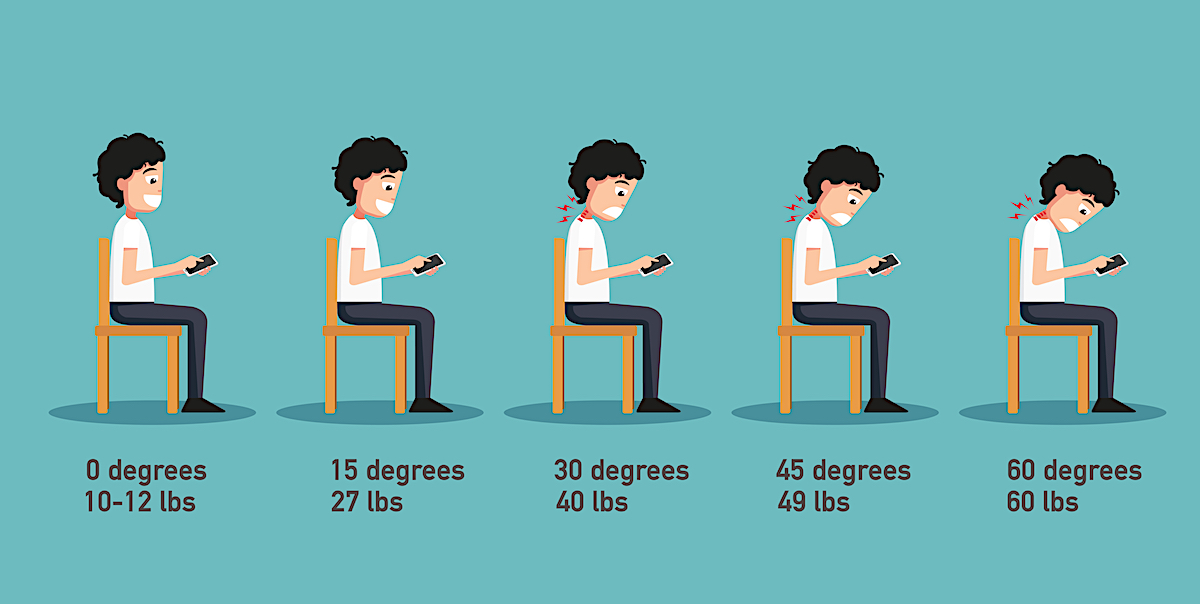
Text neck?
That was the initial diagnosis from my chiropractor. And after momentary confusion, I figured it out.
“Text neck” is what she called the stiffness and nagging pain in my upper back/neck area. It’s a common condition, she explained, and it’s triggered by bad posture during smartphone use.
Yet it was the drawing that spoke to me. She showed me this:
It shows the increasing weight that the neck bears as it bends downward and forward. The more hunched over you are, the greater the burden.
The human head weighs about a dozen pounds. (And my head is the extra large size.) At a 15-degree angle, this weight is about 27 pounds, at 30 degrees it’s 40 pounds, at 45 degrees it’s 49 pounds, and at 60 degrees it’s 60 pounds.
I actually don’t text all that much. Maybe three or four times a day. But I do check my smartphone often, on anything from news headlines and email to the scores involving my favorite sports teams.
My smartphone use is probably not as high as that of many others.
Still, the average consumer is likely to check his or her smartphone 47 times a day, according to a 2017 Deloitte survey. The exception is those between the ages of 18 and 24. They check their phones even more — 86 times a day, on average.
An estimated 264 million Americans own smartphones, according to the survey. Years ago, we would never have dreamed of having a pocket-sized device that would provide constant access to a telephone, a camera, mail, music and even whole libraries.
Nor dream that such an amazing gadget could have an impact on health.

An Atlanta chiropractor, Leana Kart, told me this week that she’s seeing text neck more often in recent years. “It’s affecting all different ages,’’ said Kart, who’s president of the Georgia Chiropractic Association (and is not my chiropractor).
Teenagers use smartphones from the moment they awaken to video game marathons at night, Kart said. “They’re bending their head forward for hours.”
Symptoms can include stiffness in the neck and shoulders; difficulty in rotating the neck; dull or even sharp pain; and headaches.
If you’re hunched over, you’re affecting the muscles, nerves and joints, Kart told me. “The biomechanics are off.”
For prevention, hold the phone at eye level, Kart said. Take frequent breaks from phone use.
“You’re not going to be able to stop using your phone,’’ she said, “but you can manage the use of it.’’
Text neck sufferers “have to change lifestyle habits so it doesn’t go back to the way it was,’’ she said.
This Healthline article points to prevention and treatment of text neck.
Since the diagnosis and treatment, I’ve been practicing smarter smartphone posture. I try to hold the phone straight across from my eyes.
At the same time, I’ve also installed a phone carrier device in my car, to avoid being pulled over for a hands-free violation under the new Georgia law to combat distracted driving.
This smartphone thing: So essential . . . and so much to worry about.
For more helpful health news, visit Georgia Health News at https://www.georgiahealthnews.com






